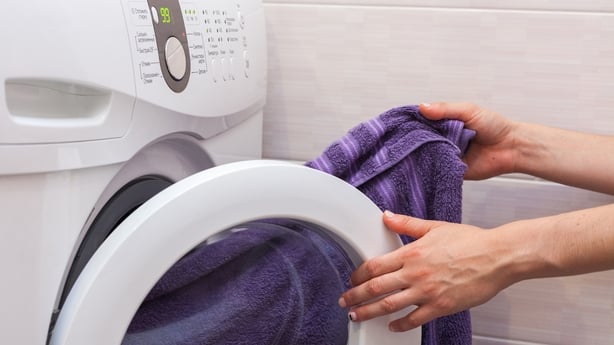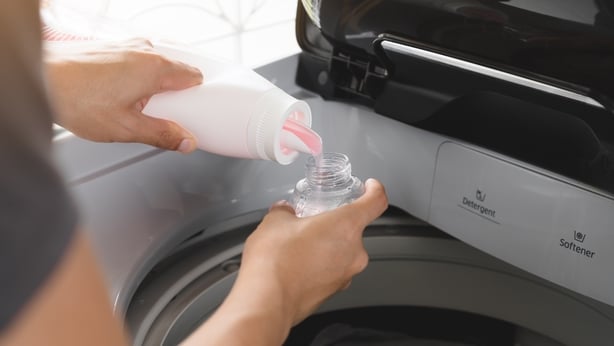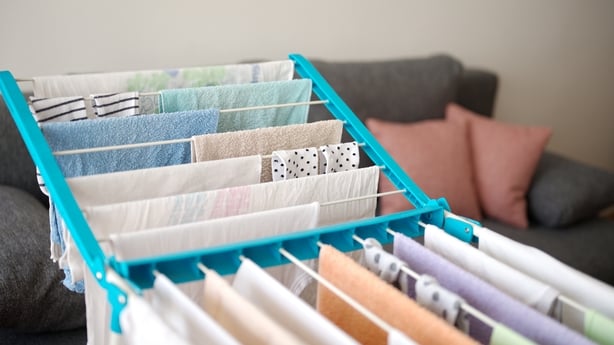Households across the country have been hit by soaring fuel prices, which hit record highs as the cost of gas, electricity and more bore the brunt of Russia's invasion of Ukraine.
It can seem challenging to find ways of saving when it comes to keeping the lights on, the dinner cooked, the house warm and the clothes washed, but there are ways of cutting costs when it comes to fuel. The answer is in your appliances – specifically, your washing machine.
Not everyone can make these changes – if you're elderly, vulnerable or have specific needs from your home appliances – but those who can stand to save hundreds each year.

Phil Smyth, a scientist with UCD Discovery, joined the Claire Byrne Live show last night to share his tips on cutting the cost of your weekly washes at home. Watch the video above now.
He outlined six ways to save on your washes:
1. Do you need to wash it? When it comes to answering this age-old question, Smyth suggests relying on the college students' favourite: the sniff test. "You're also potentially saving the clothes as well. The more that you wash them, the more you tear and rip them a little bit. Maybe you're washing things a little too much."
He pointed out that the CEO of Levi's said maybe you don't even need to wash jeans, while CNN reporter Anderson Cooper famously said he wears the same jeans every time and washes them maybe once a year – though that might be too close to the student lifestyle than we'd like.
2. Cool your wash. Why do certain appliances cost more money than others? Smyth explains that it comes down to heating, as any machine that uses heat is going to be that bit more expensive. "If you're washing a lot of stuff at 40 degrees, if you reduce that to 30 degrees, you're saving an average of 30-40 per cent of the energy cost on it", he said. "Over the course of a year, that could translate to €200, €210."
He added that washing at 20 degrees is possible, but you have to find the right detergent that works with a wash that cool. You also need to wash towels and sheets at around 60 degrees, as they have a higher bacterial load.

3. Wash in the evening. There are different rates for electricity at different times of the day, though you might not automatically be on those rates. You could be on a standard rate for a supplier, which could be 24c per kilowatt hour. Smyth explained. "But if you're on the night saver, during the day cost is a little bit higher – about 25c – but then during the night it's 12.6c."
4. Fill the drum properly. Don't stuff it, thinking you're getting more bang for your buck. Instead Smyth said you should follow the machine manual's suggestions for how much should go in, which is 80-90 per cent full. "If you can get your hand in and turn it 90 degrees at the top, that's the right amount."
Also avoid putting clothes that are tangled together in for a wash.
5. Use a shorter cycle. If your washing machine is running for less time, it will use less energy and save you money in the long run. "I will say ... these things need to be maintained, the same way a car needs to be maintained", Smyth added, saying you need to make sure your washing machine is running efficiently.


6. Air-dry where possible. Is there anything better than the first bout of "good drying weather" of the year? Air-drying your clothes not only saves energy, but leaves clothes smelling fresher. "Sometimes people use dryers, a lot of time, particularly with young families, they see it as a necessity", Smyth added.
He suggested that if you have to use a dryer, maybe do the first load together with the washing machine so the second load comes straight after, so you don't have to heat the machine again. Don't be afraid of additional spins, as they're not using heat.
For more tips on how to save money on your household utilities and car, watch the episode back on RTÉ Player now.
Watch Claire Byrne Live on Monday nights at 10:35pm on RTÉ One.


